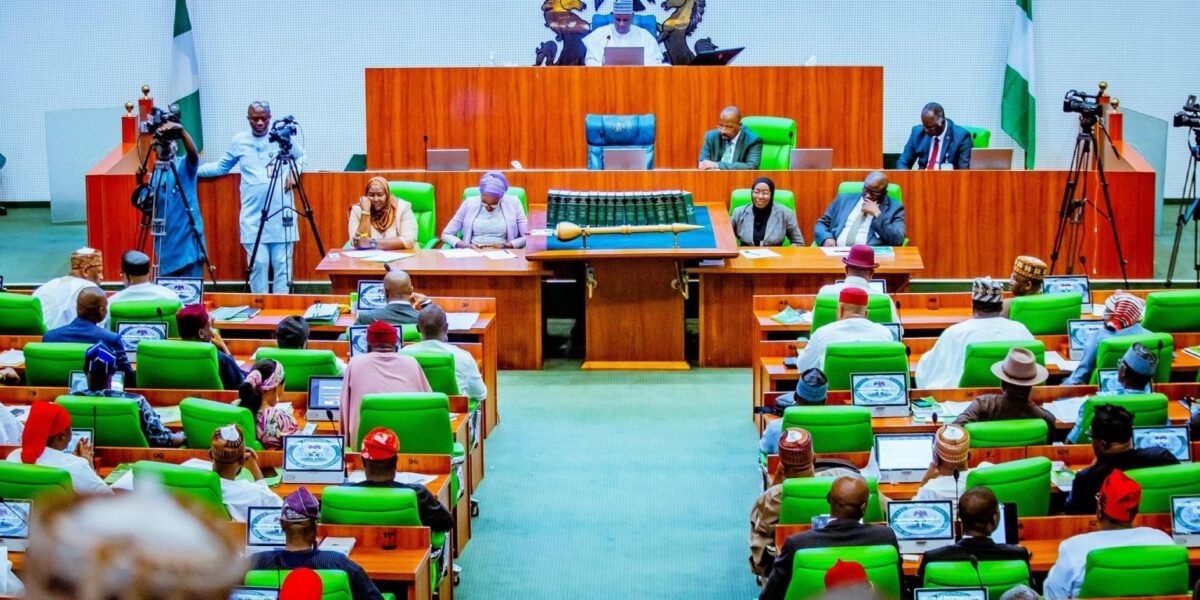Ex-lawmakers, groups reject reps’ proposal for 31 new States

The House of Representatives Constitution Review Committee has proposed the creation of 31 additional states, adding to Nigeria’s existing 36.
This move has triggered widespread reactions from prominent Nigerians and socio-cultural groups.
The proposal was announced during Thursday’s plenary by Deputy Speaker Benjamin Kalu in the absence of Speaker Tajudeen Abbas.
The committee, chaired by Kalu, outlined plans for new states across different geopolitical zones, including North-Central, North-East, North-West, South-South, and South-West.
However, the proposal faced strong opposition from groups such as Afenifere and the Arewa Consultative Forum, which criticized it as impractical and economically unviable.
According to Punch, Afenifere argued that true federalism and power devolution should take priority over state creation. The ACF echoed concerns about the financial burden and administrative challenges of adding more states.
On the other hand, the Middle Belt Forum and some regional leaders welcomed the proposal, citing the need for equity in governance and representation. Ohanaeze Ndigbo also demanded more states for the South-East, arguing that the region has been historically shortchanged.
Former lawmakers and political analysts expressed skepticism, with many questioning the economic sustainability of the new states. Some called for regional governance reforms instead, emphasizing the need to strengthen local governments and enhance resource control at the state level.
former House of Representatives member from Anambra, Barth Nnanna, kicked against the proposed additional 31 states, saying it would be unmanageable, cumbersome and chaotic to handle.
Nnanna, who represented Ogbaru Federal Constituency between 1999 and 2003, added that “even from the proposal, the South-East is shortchanged with a shortfall of four states compared to North-West and South-West.”
He said what Nigeria needed now was not additional states but a return to regional system of government with federating components making up the state. He said, “We look at the proposal and we can say that proposing additional 31 states to join the already existing 36 states will be too unwieldy to manage. Most of the existing 36 states are not viable and can’t stand on their own with the exception of three states, every other states depend on the handout from Abuja for survival and now they are proposing additional 31 states.
“What we had expected them to do is to first balance the states of the geopolitical regions. For instance, like the South-East that has five states should be giving additional states to balance the equation.
“Even with the proposal, it means South-East will given additional five states totalling 10 states. It means the region will be trailing North-West and South-West which may likely have 14 states each. You can see it is not balanced and there is no equity in the whole thing.
“Anyway, it is still a proposal; it will still be subjected to public scrutiny and acceptance. When it comes to that stage, the people will either accept it or reject it. But the truth is Nigeria doesn’t need additional states at the moment.”
Another former member of the House of Representatives, Ogbona Nwuke, has said Governors may not support the creation of additional states.
Nwuke, who represented Etche-Omuma Federal Constituency of Rivers State in the Green Chamber, also questioned the viability of the proposed states.
“It is very clear that state creation will not be possible without the support of the governors. And the way it stands state governors may not back state creation. “Anyway, as we speak, not all states appear to be viable. And to talk about that number of states being created, if that is the will of the people across the country, then one will perhaps say there is nothing wrong with that. But let me note that state creation has never been handled by any civilian administration in Nigeria
“And previous attempts to create states have also not been successful. So, it will be nice to see what stakeholders will say when the issue of states creation is tabled before them.
“But looking at history, most states created in the country were by fiat by the military and none has been created by any civilian administration.
Asked if he supports the creation of more states, he added, “We have six geo-political zones and we know that in the South East has been clamouring for one additional state.
“Now, in order to achieve a level of balance, which is missing at this time, we need to know the number of states because there has to be some balancing with Nigeria’s geographical expression.
“So, it is a critical matter, very serious matter which will demand more information, additional information on how the committee came to that number of states and then how those states will be distributed when it comes to Nigeria’s geo-political spread.”
Minister, commissioners react A former Minister of Special Duties and Inter Governmental Affairs, Tanimu Turaki, said, “It’s insane. Where will they get the money to finance the take -off and running of the government paraphernalia in those states?”
Ex-Federal Commissioner, Independent National Electoral Commission, Prof Lai Olurode, said creating more states without paying attention to governance would not solve Nigeria’s problem.
He said, “We can’t be bureaucratizing Nigeria development conundrum as if it is the way to go. If we continue to multiply the number of states we have in the country without paying serious attention to the issues of governance, creation of states will not resolve the problems.”
However, a former Commissioner for Information, Orientation and Strategy in Bayelsa State, Markson Fefegha, described the move by the House of Representatives to create more states as good for development.
“It is a welcome development that will lead to more state capitals, local government areas and constituencies. Our people should work together to actualise it,” he stated.
The proposal remains a subject of debate, with many awaiting further discussions and public scrutiny before any final decision is made.